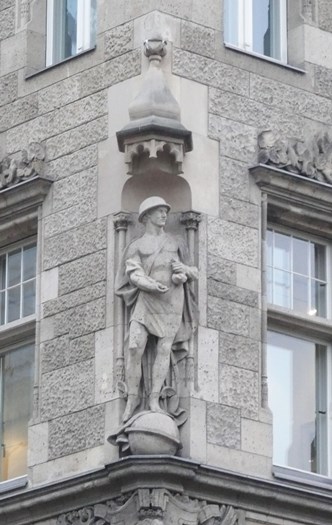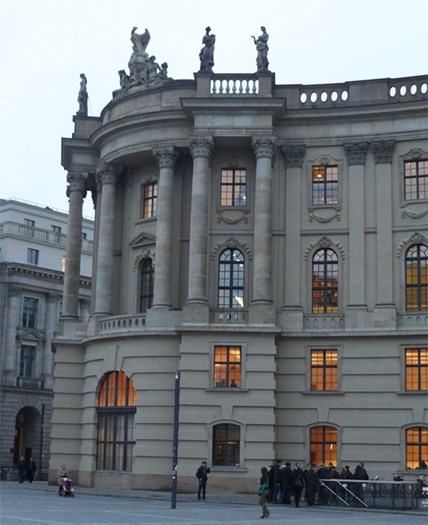BERLIN - While walking through a handsome square called Bebelplatz one night, my eyes are drawn to a corner where a white light rising from the cobblestones cuts through the darkness like a knife.
A small group of people is gathered around the light, looking down into one of Germany’s darkest moments — the “Night of the Burning Books.”
A glass panel cut in the cobblestones reveals a room painted a brilliant white that’s filled with empty bookshelves — it’s a memorial symbolizing the knowledge lost when, on the night of May 10, 1933, Nazi storm troopers, aroused by Adolph Hitler’s notorious propaganda minister Joseph Goebbels, gathered up more than 20,000 books (written mostly by Jewish scholars) from Humboldt University across the square, piled them high and set them ablaze.
That ignited a month-long campaign led by the German Student Association to “cleanse” the country of “un-German works” and resulted in millions of books being destroyed.
The simple but moving memorial is meant to burn that horrible night into our memories forever — so it never happens again.
“Micha Ullman.”


Above: The Bebelplatz has plenty of reminders of Germany Prussian Empire past.
We’re so enthralled looking at the empty room that we don’t see an elderly woman approach from behind.
“Micha Ullman . . . he’s the one who designed this memorial,” says the woman who looks old enough that she may have been alive the night this dreadful deed occurred.
“Bebelplatz was called Platz am Opernhaus (Opera House Square) back then,” continues the woman, whose words are translated by a young German tourist from Munich.
The slender woman then points to a plaque where the German words “Das war ein Vorspiel: nur wo man Bücher verbrennt, verbrennt man am Ende auch Menschen” are inscribed. In English they mean: “Where they burn books, they ultimately burn people.”
She smiles, bids us “gute nacht” (good night) and disappears into the darkness.
We’re left to ponder a while longer and then we begin admiring the stately structures, many built during the Prussian Empire, that occupy Bebelplatz, which is named after August Bebel, a founder of the Social Democratic Party of Germany in the 19th century.
Located in Berlin’s historic Mitte District, the square is bounded to the east by the State Opera House (hence its pre-war name), to the west by Humboldt University, and to the southeast by St. Hedwig’s Cathedral, the first Catholic church built in Prussia after the Reformation.
The square was laid out between 1741 and 1743 under the rule of King Frederick II of Prussia and at one time was called Kaiser-Franz-Josef-Platz in honour of Emperor Franz Joseph I of Austria on the occasion of his 87th birthday.
The square was a target of Allied bombers during World War II and most of the buildings were destroyed — it was rebuilt in the 1950s.
While exiting the square, I’m struck by the activity taking place in front of Humboldt, a university where Marx, Lenin and the Grimm brothers studied and where Einstein taught.
Dozens of people are milling about the entrance, combing through mounds of books being offered up for sale — an event that’s held annually to commemorate the Night of the Burning Books.
Germany has turned the page on that dark chapter of its history, and the presence of the books in front of the university is proof of that.
About the Author
Marc Atchison is a veteran journalist and a seasoned traveller with more than 20 years of travel writing experience. As the former Travel Editor of the Toronto Star, Canada's largest newspaper, and now Editor-in-Chief and Senior Writer for TraveLife magazine (Canada) and travelife.ca, Marc has been to over 100 countries in the world. Japan is one of his favorite destinations and he's been there on numerous occasions.